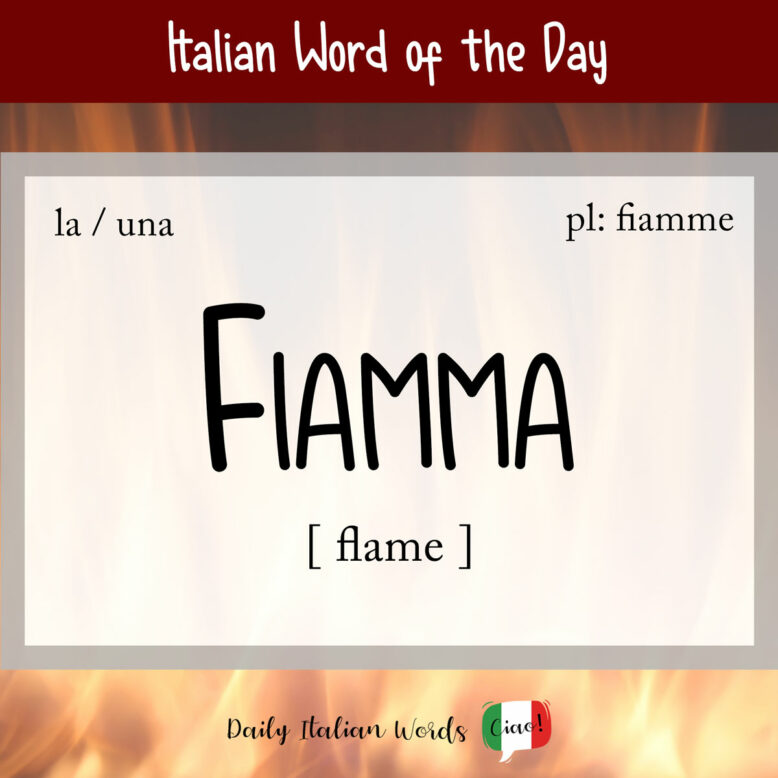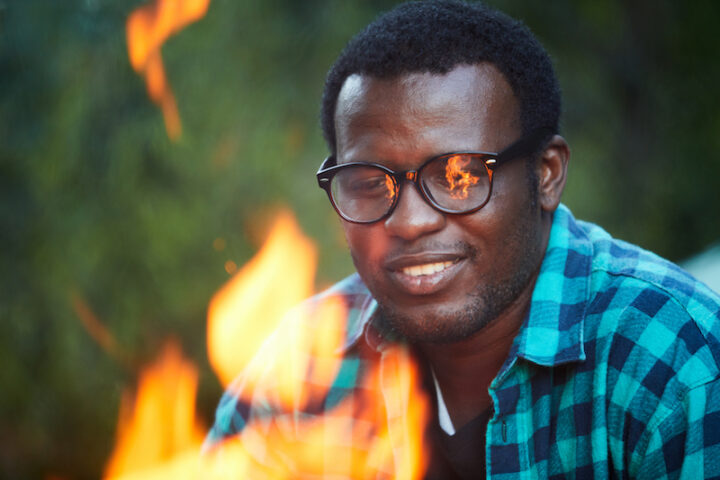The Italian word for flame is fiamma (feminine, plural: fiamme). Both the Italian and English words can be traced back to the Latin flamma of the same meaning.
/fiàm·ma/

Some of the most common types of flames and the objects that produce them include:
- la fiamma di una candela = the flame of a candle
- la fiamma di una lucerna = the flame of a lamp
- la fiamma di un fiammifero = the flame of a match
- la fiamma del fornello = the flame of the burner
If you use a gas stove, you can cook your meals a fiamma bassa (on a low flame) or a fiamma alta (on a high flame).
The plural fiamme (flames) is another way to refer to a fire. It occurs in many expressions such as:
- andare in fiamme = to burst into flames
- dare alle fiamme = to set on fire
- essere in fiamme = to be on fire
- soffiare sulle fiamme = to fan the flames
- spegnere le fiamme = to put out the fire

The mechanically minded of you might be interested to know that ritorno di fiamma (literally ‘return of flame’) refers to the backfiring of an engine when its cylinder ignites too early. In a figurative sense, it also denotes the sudden rekindling of romantic feelings.
Speaking of romance, both fiamma and flame are metaphors for the word sweetheart (amato/a).
Ho ritrovato una vecchia fiamma su Facebook.
I found an old flame on Facebook.

It is also a metaphor for ardour or passion, as in the expressions la fiamma della fede (the ardour of faith) and la fiamma dell’amore (the flame of love).
Due to its colour, fiamma may also be used to talk about very bright shades of red (rosso fiamma = flame red), as well as the shade one’s cheeks go when blushing.
Expressions featuring ‘fiamma’
Fare fuoco e fiamme
Literal meaning: to make fire and flames
English translation: to try in every possible way to obtain something
Mettere a fuoco e fiamme
Literal meaning: to put on fire and flames
English translation: to destroy with fire and devastation
Lanciare fiamme dagli occhi
Literal meaning: to throw flames from the eyes
English translation: to express anger, indignation, or hatred with a simple glance
Heather Broster is a graduate with honours in linguistics from the University of Western Ontario. She is an aspiring polyglot, proficient in English and Italian, as well as Japanese, Welsh, and French to varying degrees of fluency. Originally from Toronto, Heather has resided in various countries, notably Italy for a period of six years. Her primary focus lies in the fields of language acquisition, education, and bilingual instruction.


